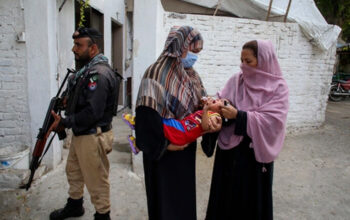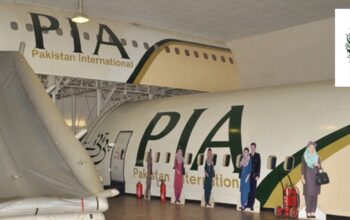The masses badly need relief, but the government needs more revenue to keep a minuscule primary surplus it promised the IMF to turn at the end of the current fiscal year.
By Naveed Naqvi
ISLAMABAD: To cut or not to cut retail prices of petrol and diesel is the question, as the government is torn by the dilemma of providing relief to the masses or making up for revenue shortfall, Independent Pakistan can report.
International petroleum prices have gone down in recent weeks warranting a cut in retail prices of fossil fuels. However, the government has a pressing need to increase revenue collection to meet its budget targets.
Well-placed sources say the Oil and Gas Regulatory Authority (Ogra) has prepared a working paper on pricing for the next 15 days which seems to explore two options.
The first option is to cut pump prices proportionate to the decline in global market prices. The second option is to convert the margin into sales tax, helping boost revenue collection for the current fiscal.
In the last 15 days, a decline in oil prices was recorded in the global market, with Brent oil price decreasing to USD 76 per barrel, the sources said.
If the proposal to give relief to the public in proportion to the global market prevails, petrol price will be cut by PKR 12 per litre, highspeed diesel price by PKR 10 per litre, light diesel price by PKR 15 per litre, and kerosene price by PKR 13 per litre.
If, on the other hand, the consideration to boost revenues prevails, prices may be maintained at the current levels by increasing GST rate. The GST rate on petrol and diesel is zero right now.
A petroleum development levy (PDL) has already been increased to its ceiling of PKR 50 per litre.
Petroleum prices are a major driver of inflation in Pakistan, and the masses grunting under the burden of sky-high inflation are hungry for a relief. The government of Prime Minister Shehbaz Sharif cannot remain aloof to the people’s plight, especially because this is an election year.
On the other hand, revenue shortfall brought on by Finance Minister Ishaq Dar’s decision to allow subsidised electricity and gas to expert oriented industries has become a major sticking point in Pakistan’s talks with the International Monetary Fund (IMF) over an ongoing bailout programme.
Islamabad is eager to go into the 9th review of the USD 7 billion Extended Fund Facility (EFF) to secure an immediate cash injection to the tune of USD 1.18 billion, seen important to keeping the cash strapped economy afloat.
The Fund staff, however, are reportedly insisting on Pakistan taking measures to keep a minute primary surplus budgeted for the current fiscal on track. The government insists it has met all targets for the review, but the fund staff say they foresee the country’s chronic primary deficit to return by the end of the fiscal year.
The delay in the onset of the 9th review is already putting unprecedented pressure on Pakistan’s dilapidated economy, with the foreign exchange cushion growing thin by the hour and the rupee bleeding value.
Whatever choice the government makes, we will know soon enough as the Ogra is due to send the summary of its recommendations on petroleum prices Wednesday. The Finance Ministry will take a decision in the matter on Thursday after the approval of the Prime Minister.
Copyright © 2021 Independent Pakistan | All rights reserved




